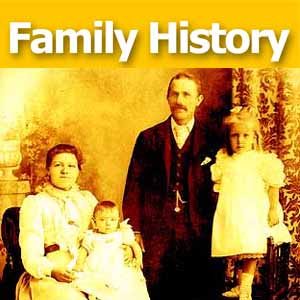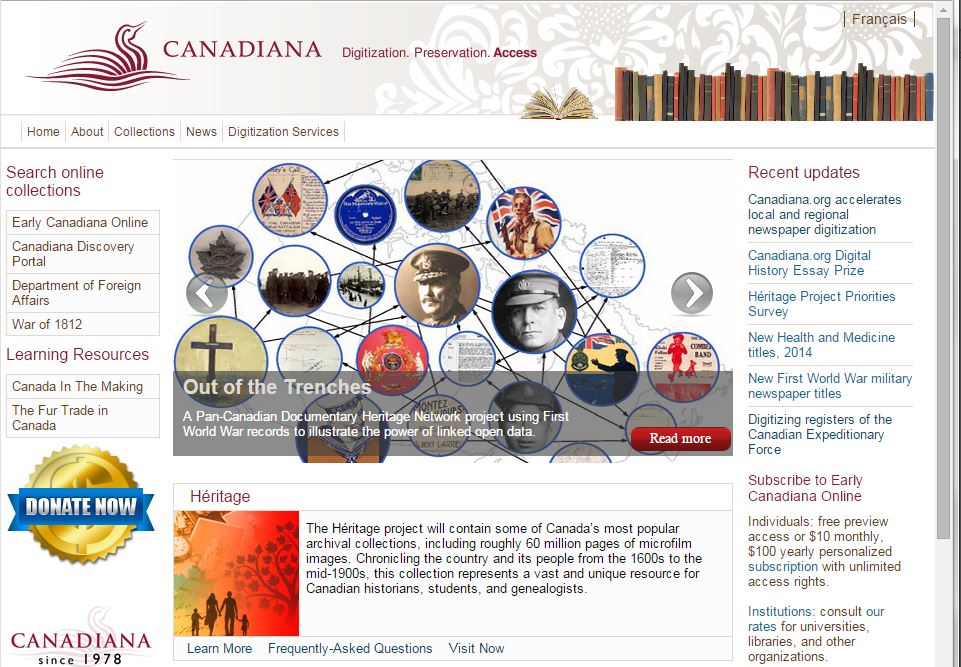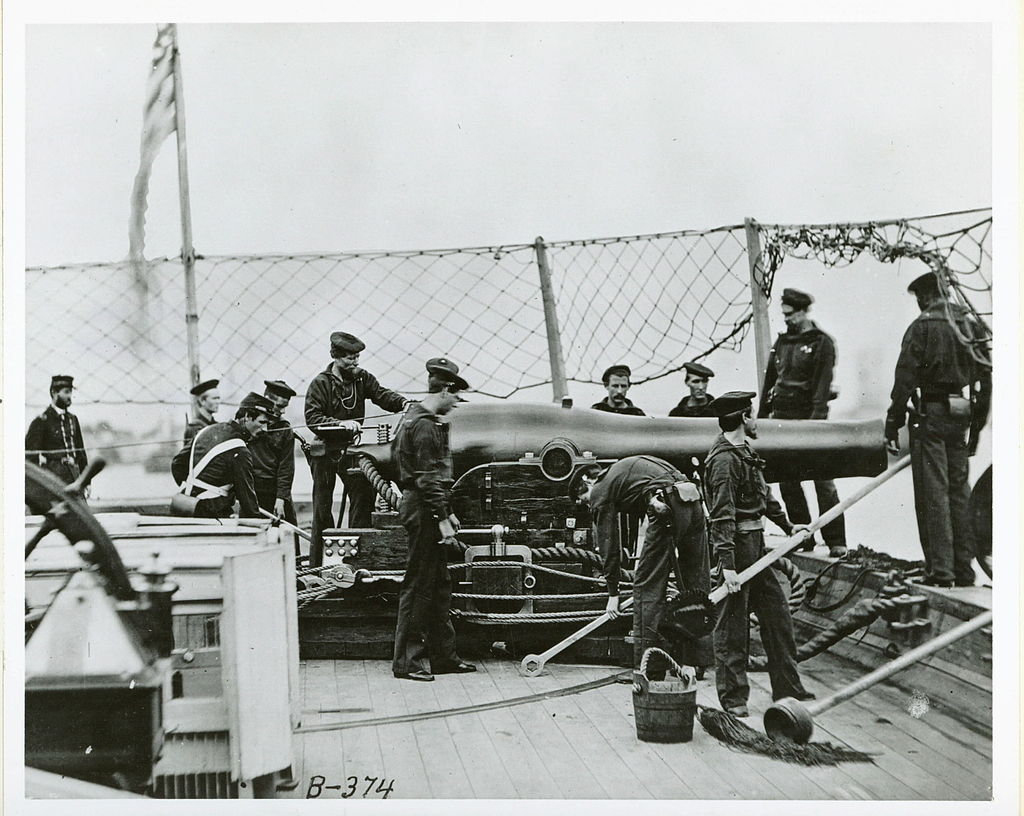Blog


Organize Digital Family Photos: Free Podcast Interview with Denise Levenick
 I love Denise Levenick’s “getting started” strategies for digital photo organization in the free May 2015 Family Tree Magazine podcast. I have thousands of digital photos on my computer–and that’s just from the past few years!
I love Denise Levenick’s “getting started” strategies for digital photo organization in the free May 2015 Family Tree Magazine podcast. I have thousands of digital photos on my computer–and that’s just from the past few years!
Denise Levenick is the author of The Family Curator blog and the book How to Archive Family Photos: A Step-by-Step Guide to Organize and Share Your Photos Digitally.
Her approach is so practical and forgiving: start where you are. Start small. Take your time. Do a few at a time. Use a consistent and simple file naming and digital file organizing scheme!
Also in this podcast, Editor Diane Haddad chimes into the conversation with 25 keepsake family photo projects. Then host Lisa Louise Cooke wraps up the photo theme with her favorite strategies for navigating the Library of Congress Prints & Photographs Online Catalog.
 Are you ready for some serious hard drive organization? We can help with that! In our free 2-part series, “Organize Your Genealogy Files,” Lisa shares the system she developed about a decade ago to keep her computer hard drive organized. Her system has withstood the test of time: she’s added thousands more files to her genealogy folders as well as folders that organize “the rest of her life.” Click here to go to these episodes of the Family History Made Easy Podcast, episodes 32-33. Genealogy Gems Premium members can also watch the 2-part Premium video series, “Hard Drive Organization.” You’ll learn similar principles but you can watch Lisa do all that digital organizing right on her computer screen!
Are you ready for some serious hard drive organization? We can help with that! In our free 2-part series, “Organize Your Genealogy Files,” Lisa shares the system she developed about a decade ago to keep her computer hard drive organized. Her system has withstood the test of time: she’s added thousands more files to her genealogy folders as well as folders that organize “the rest of her life.” Click here to go to these episodes of the Family History Made Easy Podcast, episodes 32-33. Genealogy Gems Premium members can also watch the 2-part Premium video series, “Hard Drive Organization.” You’ll learn similar principles but you can watch Lisa do all that digital organizing right on her computer screen!
Disclosure: This article contains affiliate links and Genealogy Gems will be compensated if you make a purchase after clicking on these links (at no additional cost to you). Thank you for supporting Genealogy Gems!

Canadiana: Canadian Digital Archive and Portal to the Past
 Do you have Canadian roots? Then Canadiana should be on your list of online resources searched regularly for family history information.
Do you have Canadian roots? Then Canadiana should be on your list of online resources searched regularly for family history information.
Recently Newswire.ca described Canadiana as “a digital initiative of extraordinary scale,…a joint effort of 25 leading research institutions, libraries and archives working together with the goal of creating Canada’s multi-million page, comprehensive online archive.” Its digital collections chronicle Canada’s past since the 1600s and most of its content is free.
What we especially noticed in a recent peek at this enormous Canadian digital archive:
- The Héritage Project. This FREE resource “aims to digitize, preserve and make accessible Canada’s archival materials for Canadians and the world. Héritage is also a pathfinder project to determine the best ways to organize and fund ongoing efforts to make all of Canada’s remaining documentary heritage accessible online.” Their large collection of genealogy materials so far includes immigration records, church records, land records, family histories, voters’ lists and more. Military history, government documents and aboriginal records are also well-represented. Tip: check back often! More is coming, like local and regional newspaper digitization and records of the Canadian Expeditionary Forces.
- The Canadiana Discovery Portal. This gateway to digital collections from 40 repositories points to 65 million pages! Sample subjects include Ontario genealogy and War of 1812 campaigns. This portal is also free to use.
- Early Canadiana Online, with 5 million images already and expected to grow to 16 million. This part of the website requires a subscription ($10/month or a year for $100) This is “a full-text collection of published documentary material, including monographs, government documents, and specialized or mass-market periodicals from the 16th to 20th centuries. Law, literature, religion, education, women’s history and aboriginal history are particular areas of strength.” The site describes itself as “the most complete set of full-text historical content about Canada, including books, magazines and government documents.” Tip: scroll down on the home page to click the Genealogy and Local History portal, but don’t ignore the rest of the site!
 Like this post? Here’s a few more posts you may enjoy:
Like this post? Here’s a few more posts you may enjoy:
- Can Google Help Me Search Digitized Newspaper Pages?
- Google Earth for Canada and Genealogy
- Find a Grave Canada: Now Search by Province!
- Voices of the Past: Canadian Oral History Project
- Over a Million Canadian Passenger Lists Now Online
- 71,000 Pages of Canadian Genealogy and History Now Online
If more posts like these are what you’re looking for, sign up for our free email newsletter. You’ll get Lisa Louise Cooke’s free Google Research e-book when you do! From our home page, enter your email in the sign-up box.

Free Civil War Veterans Database: Soldiers and Sailors
Recently Tom wrote in with a question about a Civil War veterans database:
“I’ve been a listener of your podcast for quite a long time. Great job.
“We have a grass-roots group trying to locate and document Civil War Veterans buried in Washington state. Is there a good website where I can enter a name and unit identification and get results of the person’s [Civil War] service? I’m having a really hard time finding US Navy sailors.”
It sounds like Tom is conducting a very worthwhile project! (We added the link above to the website for the project, in case you’re interested.) An excellent resource–still in progress for sailors with only about 20% of them–is The Civil War Soldiers and Sailors System (CWSS).
The site describes its resources as a “database containing information about the men who served in the Union and Confederate armies during the Civil War. Other information on the site includes histories of Union and Confederate regiments, links to descriptions of significant battles, and selected lists of prisoner-of-war records and cemetery records, which will be amended over time.”
This is an excellent resource for soldiers. As far as sailors go: “The Civil War Soldiers and Sailors System currently contains the records of approximately 18,000 African American sailors, though additional records will be added in the future. The information in the Sailors Database is derived from enlistment records and the quarterly muster rolls of Navy vessels. Approximately half of the sailors entered the service at the Navy’s established points of enlistment. For these men and women, enlistment records serve as the primary sources of information. The Howard University research team used muster rolls to fill in missing data or to correct apparent misinformation recorded at the time of enlistment. Information about the remainder of the enlistees was derived directly from these muster rolls. When research uncovered inconsistencies in the data (such as conflicting reports of an individual’s age at the time of enlistment) the most frequently recorded response was used.”
“Descendants of Civil War sailors will find biographical details regarding age, place of birth, and occupation that may help supplement or clarify details from such other sources of genealogical information as birth, death, and census records. Moreover, information about any individual sailor’s enlistment and service is necessary for determining the presence or absence of their pension records at the National Archives.” Click here to read an article from the National Archives about African-American servicemen in the Navy in the Civil War. I covered the Civil War Soldiers and Sailors database in the free Genealogy Gems Podcast Episode 149. Be sure to check out the show notes page (click the link I’ve provided.) There you’ll find the information written out for you and the links I discuss in the episode.
 If a Navy ancestor isn’t among those already listed, my first instinct is always to turn to Google searches first. I ran a search in Google Books for free (fully digitized) books meeting the criteria “civil war” “sailors” and there are some resources there as well. Here’s a link to the search results. One example is the book shown here to the left: Manchester Men, which appears to be a published list of those who served from Manchester, N.H. (click on the book cover to read it in Google Books). Learn more about Google searching for “niche” topics like this in the fully-revised and updated 2nd edition of my book, The Genealogist’s Google Toolbox.
If a Navy ancestor isn’t among those already listed, my first instinct is always to turn to Google searches first. I ran a search in Google Books for free (fully digitized) books meeting the criteria “civil war” “sailors” and there are some resources there as well. Here’s a link to the search results. One example is the book shown here to the left: Manchester Men, which appears to be a published list of those who served from Manchester, N.H. (click on the book cover to read it in Google Books). Learn more about Google searching for “niche” topics like this in the fully-revised and updated 2nd edition of my book, The Genealogist’s Google Toolbox.





